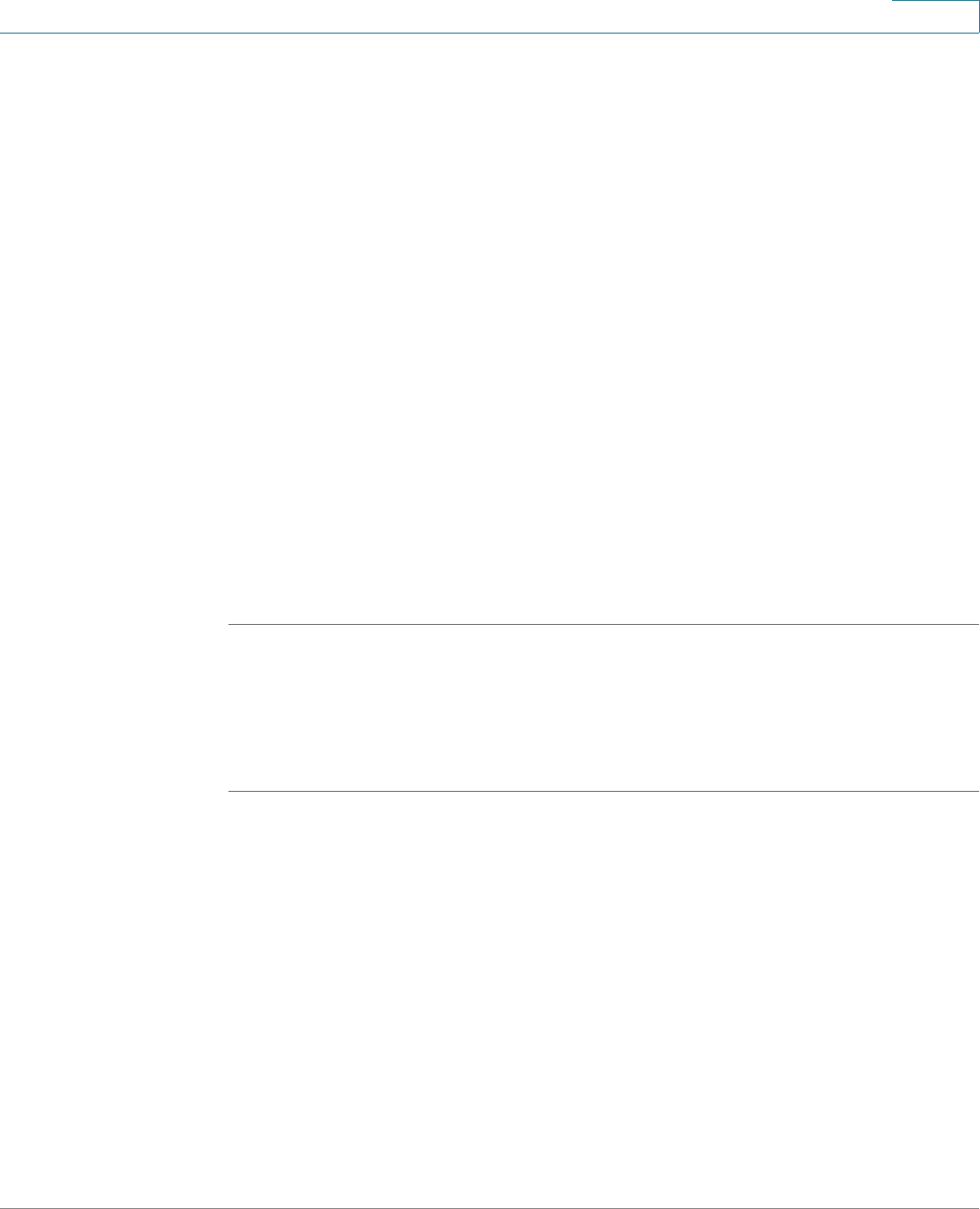
Security Services
Configuring Application Control
Cisco ISA500 Series Integrated Security Appliances Administration Guide 312
7
NOTE: By default, the table filter settings are hidden. You can click the
triangle next to Hide Table Filter Settings to display or hide the table filter
settings.
STEP 4 After you set the table filter settings, click Refresh Table to refresh the data in the
table. Only the applications that you specified are displayed in the table.
STEP 5 Specify the preventive action for a single application or for all applications in a
category:
• To permit or block traffic for all applications in a category, click the Edit
(pencil) icon in the Configure column for the category. For complete details,
see Permitting or Blocking Traffic for all Applications in a Category,
page 312.
• If the action, schedule, or logging settings vary among the applications in a
category, you can configure the settings for each application in the category.
You must first choose keep application-level settings for the Action and
Logging options of the category, and then click the Edit (pencil) icon in the
Configure column for the application. For complete details, see Permitting
or Blocking Traffic for an Application, page 313.
STEP 6 Click OK to save your settings.
Permitting or Blocking Traffic for all Applications in a Category
This section describes how to configure the category default settings. The
category default settings are applied to all applications in a category.
STEP 1 Click the Edit (pencil) icon in the Configure column for a category.
The Policy Profile - Add/Edit window opens.
STEP 2 Specify the category default settings:
• Category: The name of the category.
• Action: Choose Permit to permit traffic, or choose Deny to block traffic. If
the action settings vary among the applications in the category, you must
first choose the keep application-level settings option, and then configure
the action for each application in the category. See Permitting or Blocking
Traffic for an Application, page 313.
